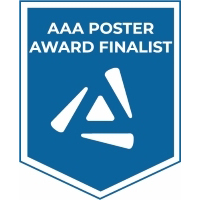Back
ANATOMY
Category: Anatomy
Session: 474 Anatomy Education
(474.1) Clinical Communication Skills Training in Third- and Fourth-Year Medical Students: A Qualitative Study
Sunday, April 3, 2022
10:15 AM – 12:15 PM
Location: Exhibit/Poster Hall A-B - Pennsylvania Convention Center
Poster Board Number: C1
Introduction: AAA has separate poster presentation times for odd and even posters.
Odd poster #s – 10:15 am – 11:15 am
Even poster #s – 11:15 am – 12:15 pm
Introduction: AAA has separate poster presentation times for odd and even posters.
Odd poster #s – 10:15 am – 11:15 am
Even poster #s – 11:15 am – 12:15 pm
Kathryn Veazey (University of Mississippi Medical Center), Ellen Robertson (University of Mississippi Medical Center)
Kathryn Veazey, MS
Presenting Author
University of Mississippi Medical Center
Jackson, Mississippi
Presenting Author(s)
Healthcare professionals require strong clinical communication skills (CCS), yet many healthcare workers demonstrate discrepancies between their self-rated competency in communication skills and patient satisfaction. These communication skill deficiencies may cause increased stress and anxiety in healthcare professionals, which in turn adversely affects patient compliance and long-term health outcomes. According to the Transaction Model of Communication, communication can be shaped by social, relational, and cultural contexts. This study sought to identify the factors that influence how medical students gained CCS and how those factors evolved over the course of the medical school experience. Semi-structured interviews of third- and fourth-year medical students were conducted at the University of Mississippi Medical Center. Qualitative responses underwent deductive thematic analysis using the Transaction Model of Communication with iterative open coding to identity and name themes. Results indicated that students felt there were profound differences in CCS training between the preclinical versus clinical years. They suggested preclinical CCS training, while valuable, often falls short in preparing them for the challenges of navigating real patient care. Medical students also recognized the value of CCS for safe and effective healthcare practice, but strongly advocated for changes to the current CCS curriculum, including earlier exposure to real patients, increased cultural awareness training, explicit telehealth training, and increased opportunities to practice “delivering bad news”, even in simulated settings. The findings of this study have provided new insights into the individual medical student experience, which speak to the experiences of medical students and practitioners throughout the global healthcare field. This study’s findings may be used to inform curricular changes such as increased training on select topics and earlier access to real patient experiences, which may improve students’ confidence and competency in their clinical communication abilities, thereby improving patient care.

